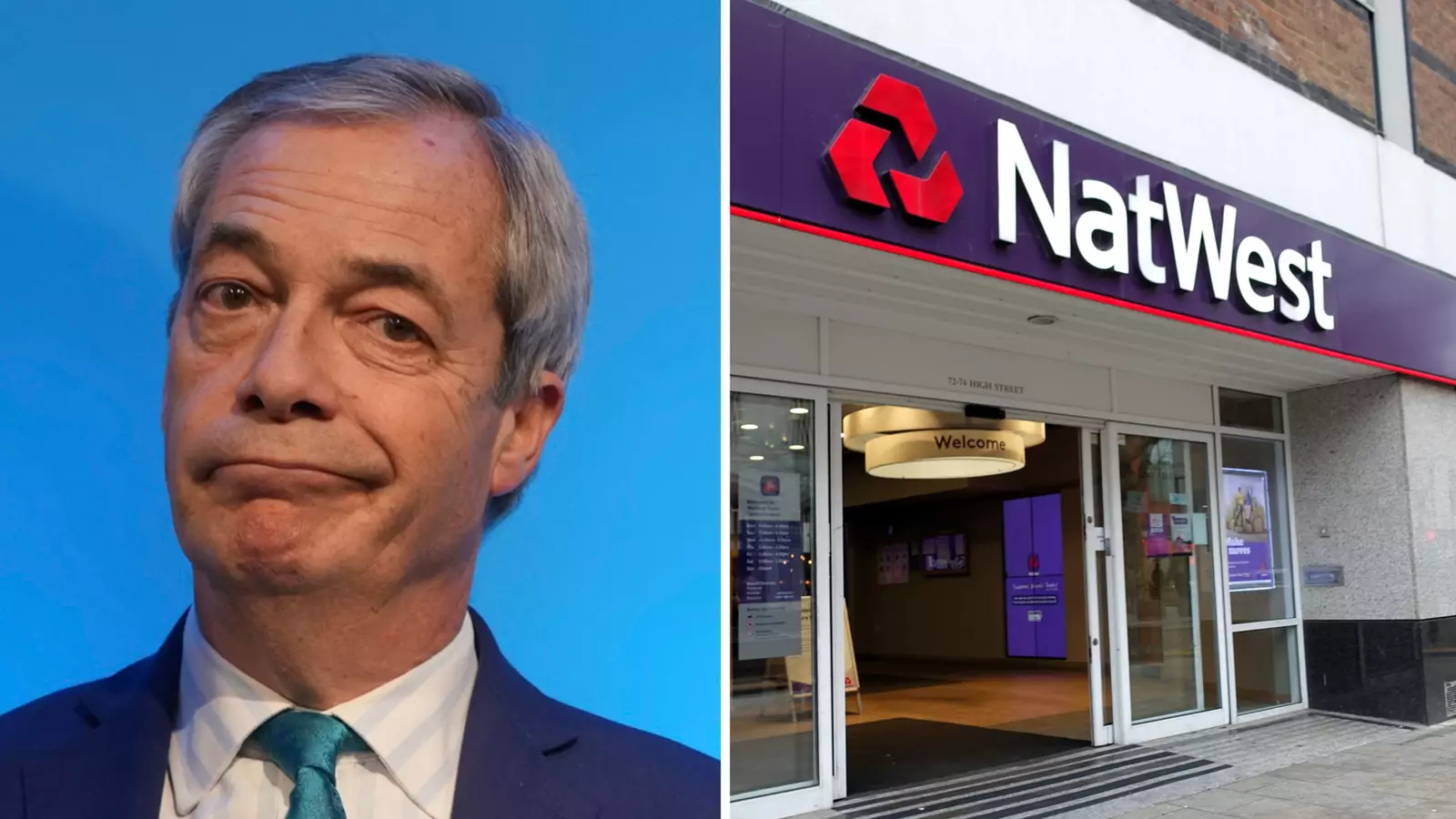In a significant twist of events within the UK’s financial landscape, Nigel Farage, the leader of Reform UK, is contemplating private criminal proceedings against the NatWest Group. This decision arises from a debanking controversy that not only resulted in damaging public scrutiny for the bank but also led to the departure of its former chief executive, Dame Alison Rose. Farage’s actions reflect a deeper narrative about accountability in the banking sector, particularly regarding how political affiliations can influence financial services. His maneuvering illustrates a calculated move to re-assert his political influence, especially as the future of Britain teeters on the brink of change.
The debanking situation gained prominence over the summer of 2023 when reports surfaced asserting that NatWest’s Coutts subsidiary had closed Farage’s accounts. The implications of this decision were twofold: it raised questions about the motivations behind such a closure and sparked a political firestorm. Initially, NatWest claimed the closure was a result of commercial issues; however, subsequent internal findings pointed towards political considerations. This revelation fueled discussions about the treatment of politically exposed persons (PEPs), thereby forcing regulatory scrutiny over how banks handle accounts affiliated with public figures.
Dame Alison Rose’s resignation underscores the backlash that ensued from this debacle. It prompted a reaction from the highest levels of government, specifically from Rishi Sunak and Jeremy Hunt, who expressed a lack of confidence in her ability to lead the institution effectively. This governmental intervention signifies the critical intersection of politics and finance, highlighting fears that private banking institutions may wield undue influence over public figures based on their political views.
Farage’s decision to engage Chris Daw KC, a distinguished legal counsel from Lincoln House Chambers, represents a multifaceted legal strategy aimed at challenging NatWest’s actions. By exploring the feasibility of a criminal case, Farage demonstrates not only his resilience but also his commitment to holding the banking giant accountable for perceived injustices. Dan Morrison, a partner at Grosvenor Law, emphasized that Farage’s decision stems from significant concerns regarding potential criminal liabilities arising from the banking giant’s conduct.
This legal initiative arrives just before the expected release of NatWest’s annual results, a move that could strategically influence public perception and shareholder confidence. Moreover, as the government prepares to divest its remaining shares in the bank—nearly 17 years after an extensive taxpayer bailout—Farage’s maneuvers could alter the narrative surrounding the bank’s financial health and governance.
Simultaneously, Farage’s political fortunes may be shifting as his party, Reform UK, begins to attract attention from a disenchanted electorate. Recent polling data published by Sky News revealed that Reform UK is gaining traction, placing it ahead of major parties such as Labour and the Conservative Party. This increasing influence solidifies Farage’s place as a pivotal figure in British politics, especially with the next general election looming on the horizon in 2029.
His affiliation with figures like Donald Trump further complicates the narrative; the former US President’s resurgence casts a long shadow on Farage’s future as both figureheads navigate a world reshaped by populist sentiments. Farage’s rising profile may herald a new political era in the UK, marked by a fusion of anti-establishment rhetoric and financial accountability.
The unfolding scandal not only challenges NatWest’s corporate governance but also serves as a barometer for the evolving relationship between finance and politics in the UK. While NatWest’s current leadership under Paul Thwaite paints the organization as financially resilient, the specter of Farage’s legal actions risks reopening wounds that the bank may prefer to heal. As the government prepares for a complete exit from its stake in NatWest, the importance of transparency and ethical conduct within the banking sector remains paramount.
Farage’s pursuit of justice in the realm of financial services encapsulates a broader movement toward accountability, heightening awareness of how individual rights intersect with institutional power. Whether or not he succeeds in his legal endeavors may ultimately depend on the readiness of the legal system to address these critical concerns in a landscape that seems increasingly fraught with tension and division.

